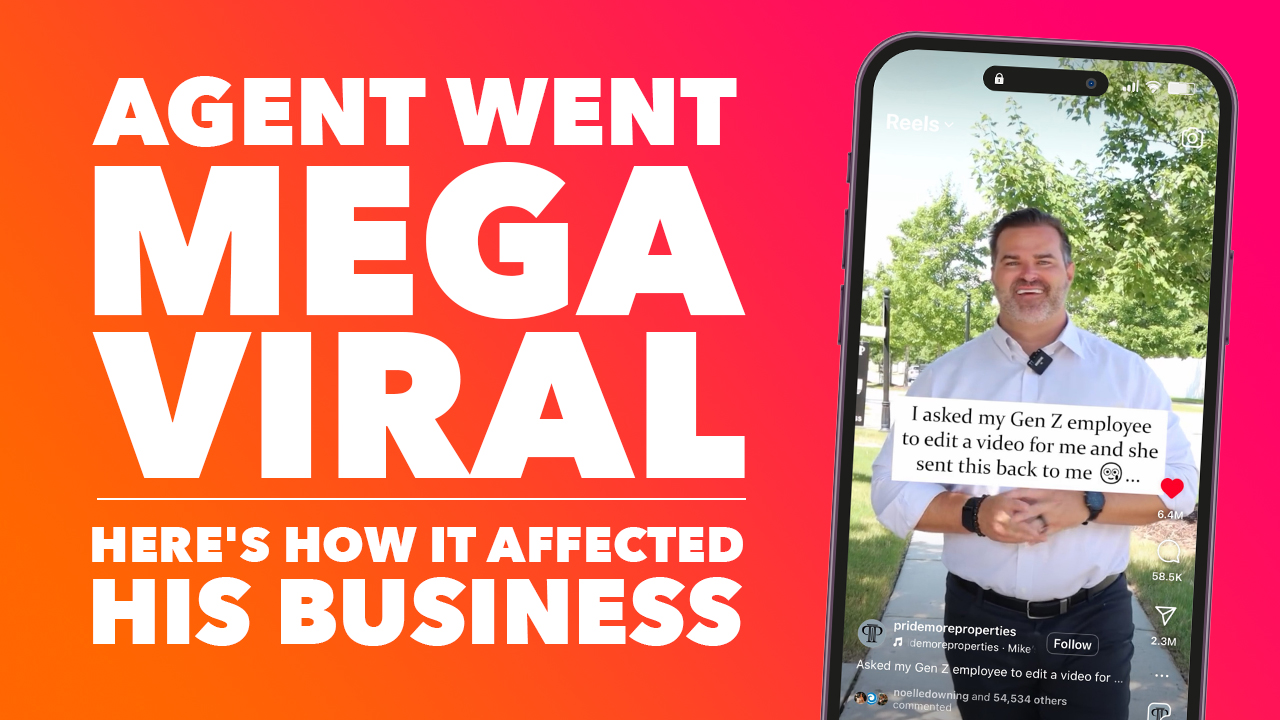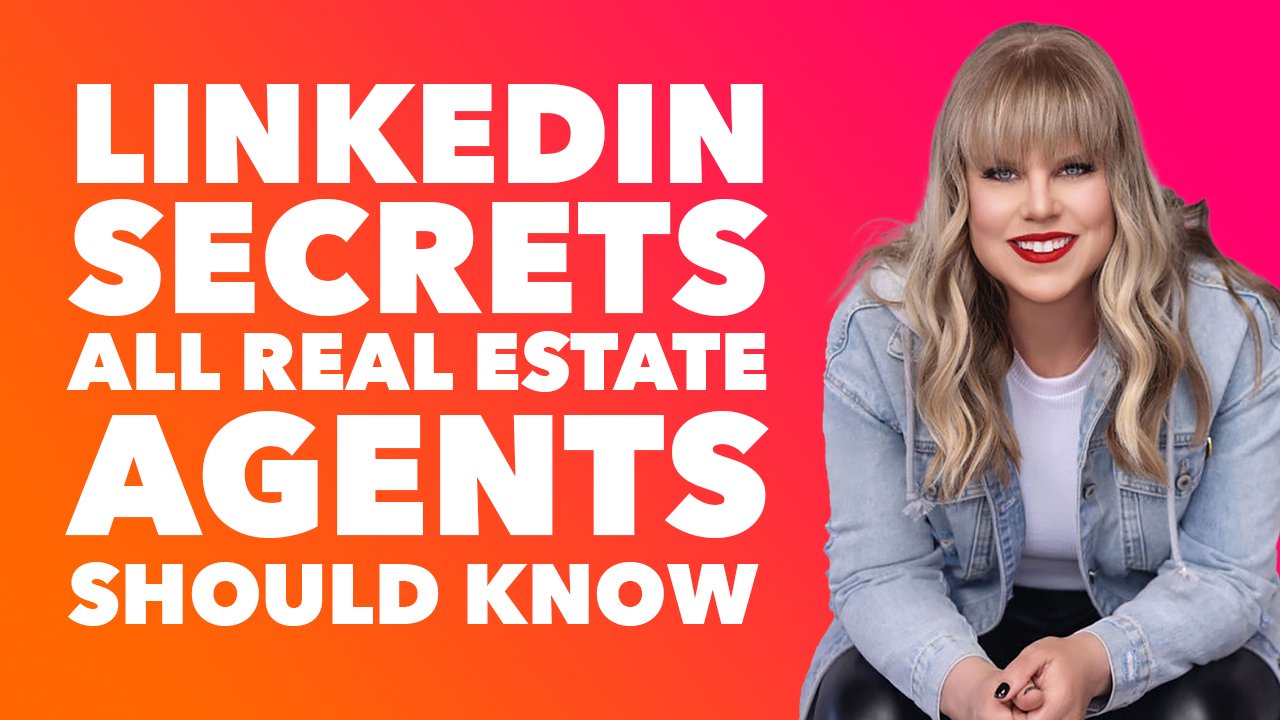Ep. 53: Interview with Kyle Wade: The Challenges of Breaking Ground in a New Industry
New real estate agent Kyle Wade may be just starting out in the industry, but it’s his determination and entrepreneurial spirit that are propelling him to the top of his game.
In this episode of Stay Paid, Luke and Josh sit down with Wade to discuss how he hit the ground running with his real estate business, and how he plans to overcome the stigma that 87 percent of agents fail in the first five years.
Key Points:
- If you can overcome fear, you can realize your full potential
- Be consistent and follow through with your leads
- Angle as many opportunities as you can to get in front of your audience
About Kyle Wade:
Kyle Wade grew up playing baseball, and his entire family are very dedicated baseball fans—his older brother even plays professionally. For the last three years, a back injury has prevented him from realizing his dream of playing professional baseball, but this change helped him tap into another childhood dream of being a successful real estate agent.
After a year of community college, he decided to dive headfirst into real estate. Though he’s only been in the business for a little more than six months, Wade is already seeing success through his entrepreneurial mentality, and is showing great promise for the future of the real estate industry.
Q: What are you doing to generate leads for your business?
A: To speak on the 87 percent statistic, I think a reason why a lot of people do fail in the first few years is because of cold calling and going to meet people—a lot of people don’t like to be solicited to. I grew up in sports where there is a lot of failure and I learned how to deal with that adversity.
The main way I’m growing my business is, number one, I’m trying to angle every opportunity. Everyone is trying to find the best way to get leads, and how I think of it is I want to hit them from every angle that I can: cold calling, door knocking, networking, email marketing—every angle we can get to be in their face as much as we can. Everyone knows five to ten real estate agents, so it’s a matter of can you be in phones or faces enough that when the time comes for someone to sell their house, they think of you who emailed them in the last six months and give you a call. Consistency is a very vital part of it. If I have one good cold call and I don’t follow up with them consistently over the next six months, they aren’t going to remember me.
Q: Who are you cold calling?
A: Right now, it’s expired listings, which are tough. They don’t like us. For sale by owners (FSBOs) I’ve had some really good traction with. And the other one I’ve been trying to do is, I contacted my title group and told them to give me a list of every single homeowner in Orange County who owns at least three properties. So, I reach out to them and say, “I see you own a couple properties in the area. If you feel you aren’t getting the money back you expected, let’s have that conversation. Or, even if you just want to add to your real estate portfolio, let’s have a conversation about it.” Another thing, too, is with FSBOs, if you can find a really good script, stick to it and get comfortable with it, I’ve found a lot more success in that realm than expired leads.
Q: Where do you get your leads for FSBOs?
A: We pay a company called Vulcan7 that gives us all of the numbers. They give you training videos, scripts—the whole nine yards. We do use their scripts, but the one thing we try to do is add our own touch. I try to get as personable as I can. When you go script by script, they get a sense that you’re reading off a book. If you have a conversation and are a friend to them, they’re a lot more open to you.
Q: You’re prospecting FSBOs—what’s the hardest things you’re facing?
A: The good thing is, I thought going into these FSBOs that a lot of them just hate real estate agents. I’ve found that a lot of them just don’t really know what they’re doing, and they don’t have the information needed. The bad thing is, a lot of them don’t want to give up their money, and I understand. When you try and tell them “I can net you more money, even after my commission,” it’s still hard to convince them.
For example, I was calling someone this morning (and I still set the appointment somehow), but it was a big property and the seller said “I just don’t logically see how you can get me more money. My house is beautiful, it can sell by itself. I get the expertise thing—you have the knowledge. But there’s no way you can bring me more money.” He told me to send him an email with some bullet points, and that he would get back to me. But I told him, there’s no way I can convey what we can do for you over an email. You really have to feel the energy of it, that’s the biggest thing.
Q: How many calls are you making a day?
A: The beginning of each month we usually have a big list. For example, the beginning of this month on the first day, my colleague, Mario, and I probably called about 300 people. After that, it’s about 50 to 100 people, each. We have a system where we divide them up, call the new ones, and then go back and call the ones who haven’t answered in the past. So, it’s typically about 100 people a day.
Q: Are you tracking how many calls you make to get an appointment?
A: I’m glad you brought that up. I know I need to do a better job of that. Mario does a really good job with that. Last week I set three appointments, so I would say 100 calls to an appointment, and not everyone will answer. I spent three days cold calling, and for those three days I scheduled three appointments.
Q: You said you’re taking the action to be everywhere. Are you doing any door knocking, as well?
A: Mario has this crazy, crazy plan that we’ve been doing. Each day we set out and within our farming city, we pick one or two neighborhoods and the order of the streets we will hit, and that’s our plan for the day. The next day, we pick a new neighborhood, a new street, and that’s what we hit. The reason why I believe we haven’t had a lot of hits yet is because we’re just breaking into these neighborhoods. We just switched up our farming area. We don’t really shake too many hands. What we focus on is giving them gifts for Thanksgiving and Christmas.
Q: What’s your goal for next year?
A: Me, personally—$10 million. Whether it’s high or low, I think it’s important to have a high goal but a reasonable goal, too. I think you need to have a dream goal that people think is crazy, but also a realistic goal. I used to have this big goal in my room, and I would lose sight of that because it’s so far away and I couldn’t see the end game. But now that I have this reachable, attainable goal, I can remind myself that I’m that close to it.
Q: You’re six months into the business and you have a goal of $10 million. What’s been the biggest challenge in your first six months?
A: I think experience and knowledge. We’re in a business that experience is a huge thing. Not saying that I’m not knowledgeable, but Orange County is one of the biggest markets there is for real estate. We’re going against huge names, and some of these agents have a lot of leverage and knowledge under their belt. That’s what a lot of people are looking for when they’re dealing with the biggest financial asset that they have. It’s difficult to convince people to trust someone younger to sell their home over someone with 20 or 30 years of experience. I don’t mention my age, ever.
Q: What are some of the things you’re leveraging to help you overcome that?
A: Definitely social media. There are a lot of millennial homebuyers nowadays. Even with older home buyers or sellers, they’ll typically have no idea what social media is. If I can come at them with a stronger approach to social media and show them the specifics of what we’re going to target and how, it gives me a leg up on that.
Another thing is, a lot of agents are so used to throwing these listings on Zillow and waiting for the buyers to come to them. They are so complacent. If you can show how you’re actively going after your buyer, it really puts trust into that buyer.
Q: You attribute a lot of your success to an entrepreneurial mentality. How do you see that shaping how you approach your business?
A: When you have that entrepreneur mindset, you block out everything from the outside. You block out all of the negatives, which takes away a lot of fear. My biggest thing when I started was I was still kind of scared of cold calling and going out and shaking hands. But once I adopted this mindset, which I always have had just not to this extent, you learn how to not care. Once you stop caring about what’s on the outside and focus on you, regardless of what someone says to you it doesn’t matter.
Q: What are two or three things you do every morning that drive success in your business or personal life?
A: Morning preparation. Before anything, it’s preparing my mind and remembering the small goals for that day. Once I developed these morning preparations, my cold calling got better, my door knocking got better, and my productivity was through the roof. I knew what I had to get done throughout the day and I had this accountability for myself.
Q: What’s one thing that you would tell younger Kyle to do differently?
A: Consistency, in the very beginning. When I first started, I was very ahead with social media and was very good with marketing campaigns. I was just bad at following up. I was so timid, I didn’t know if it was the right time to call people, and I lost a lot of leads. Take action, and stay consistent with that lead.
Action Items:
Following this podcast, it’s our goal to provide you with as many actionable tips as possible. This episode includes …
- Ask yourself where your leads are coming from, write them out, and use our lead calculator to check the value of your leads.

















 Soundcloud
Soundcloud iHeart Radio
iHeart Radio Spotify
Spotify Spotify
Spotify


